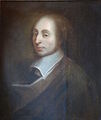Template:Selected anniversaries/August 18: Difference between revisions
No edit summary |
No edit summary |
||
| Line 10: | Line 10: | ||
File:Marin Mersenne.jpg|link=Marin Mersenne (nonfiction)|1635: Mathematician, theologian, and crime-fighter [[Marin Mersenne (nonfiction)|Marin Mersenne]] uses new theory of acoustics to detect and prevent [[crimes against mathematical constants]]. | File:Marin Mersenne.jpg|link=Marin Mersenne (nonfiction)|1635: Mathematician, theologian, and crime-fighter [[Marin Mersenne (nonfiction)|Marin Mersenne]] uses new theory of acoustics to detect and prevent [[crimes against mathematical constants]]. | ||
||1652: Florimond de Beaune dies ... jurist and mathematician. In a 1638 letter to Descartes, de Beaune described the first example of the inverse tangent method of deducing properties of a curve from its tangents. Pic, book cover: http://www.librairiedesmaths.com/site/ficprod.asp?IDProduit=1887 | |||
||1685 – Brook Taylor, English mathematician and theorist (d. 1731) | ||1685 – Brook Taylor, English mathematician and theorist (d. 1731) | ||
Revision as of 10:55, 15 August 2018
1633: Mathematician, physicist, inventor, and Christian crime-fighter Blaise Pascal demonstrates pioneering calculating machine which detects and prevents crimes against physics.
1634: Urbain Grandier, accused and convicted of sorcery, is burned alive in Loudun, France. He was the victim of a politically motivated persecution led by the powerful Cardinal Richelieu.
1635: Mathematician, theologian, and crime-fighter Marin Mersenne uses new theory of acoustics to detect and prevent crimes against mathematical constants.
1910: Mathematician Pál Turán born. He will work primarily in number theory, but also contribute to analysis and graph theory.
1910: Judge Havelock and Nikola Tesla demonstrate new data transmission protocols which will be useful in predicting and preventing crimes against mathematical constants.
1911: Computer scientist Klara Dan von Neumann born. She will be one of the world's first computer programmers and coders, solving mathematical problems using computer code.
2016: Advances in zero-knowledge proof theory "are central to the problem of mathematical reliability," says mathematician and crime-fighter Alice Beta.





